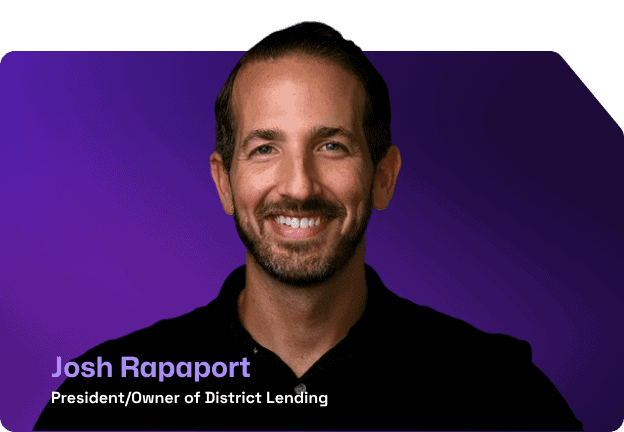Are you considering financing options for your real estate venture?
With various loan products available, it can be overwhelming to navigate through the various choices.
Among these, two commonly discussed options are DSCR (Debt Service Coverage Ratio) loans and conventional loans.
Each comes with its own set of advantages and disadvantages that can significantly impact your financial strategy.
In this blog post, we’ll explore the pros and cons of DSCR Loan vs Conventional Loan, providing you with key insights you need to make an informed decision tailored to your specific needs and circumstances.
Whether you’re a seasoned investor or a first-time homebuyer, understanding these distinctions is crucial for maximizing the potential benefits of your borrowing experience.
Let’s begin!
Table of Contents
DSCR Loan vs Conventional Loan: Comparison Chart
DSCR loans and conventional loans are two financing options available for real estate investors and homebuyers, each with their unique requirements and characteristics.
Here’s a table that highlights the key similarities and differences between the two:
| Feature | DSCR Loans | Conventional Loans |
| Purpose | Primarily for investment properties | For primary residences, second homes, and investment properties |
| Borrower Focus | Based on property cash flow | Based on borrower’s personal income and creditworthiness |
| Income Verification | Not required; focuses on the property’s income-generating ability | Required; includes W-2s, tax returns, and employment verification |
| Debt-to-Income Ratio (DTI) | Not typically a factor | Critical factor; usually must be below a certain threshold (e.g., 43%) |
| Credit Score Requirements | May be more flexible | Generally requires a higher credit score (e.g., 620 or above) |
| Down Payment | Can be higher than conventional loans | As low as 3% for qualified borrowers |
| Interest Rates | Typically higher than conventional loans | Typically lower, based on credit score, DTI, and other factors |
| Loan Terms | Similar range (e.g., 15, 20, 30 years) | Similar range (e.g., 15, 20, 30 years) |
| Loan Amount Limits | May not have strict limits, varies by lender | Subject to conforming loan limits set by FHFA |
| Property Types | Focuses on rental and commercial properties | Includes a wider range of property types, including single-family homes, condos, and multi-unit properties |
| Primary Benefit | Ideal for investors with strong rental income but potentially weak personal income documentation | Ideal for borrowers with strong personal financial profiles seeking to finance a broader range of property types |
| Insurance Required | Depends on lender policies | Private Mortgage Insurance (PMI) required if down payment is less than 20% |
Both DSCR and conventional loans offer unique advantages depending on the borrower’s financial situation, the property type, and the purpose of the loan.
DSCR loans provide a way for investors to leverage their investment properties based on the income those properties generate, bypassing the stringent personal income verification processes required by conventional loans.
On the other hand, conventional loans are generally more accessible for purchasing primary residences and offer lower interest rates for borrowers with strong credit profiles.
What is a DSCR Loan?
A DSCR loan is a type of non-owner occupied financing that primarily focuses on the cash flow generated by the property rather than the personal income of the borrower.
The “Debt Service Coverage Ratio” (DSCR) is a calculation used to measure the cash flow available to pay current debt obligations.
It compares the property’s annual net operating income (NOI) to its annual mortgage debt service, including principal, interest, and, in some cases, lease payments.
Pros of DSCR Loans:
- Income Verification Flexibility: One of the biggest advantages of DSCR loans is that they do not require traditional employment or income verification. This makes them an attractive option for investors who might have difficulty documenting their income.
- Focus on Property Cash Flow: Since DSCR loans are based on the income generated by the property, they can be easier to qualify for if the property has strong rental income.
- Quick Closing: The underwriting process for DSCR loans can be faster than conventional loans because it focuses on the property rather than the borrower’s personal financial history.
Cons of DSCR Loans:
- Higher Interest Rates: DSCR loans often come with higher interest rates compared to conventional loans, reflecting the higher risk associated with not considering the borrower’s personal income.
- Larger Down Payment: Investors may need to make a larger down payment, typically 20% or more, depending on the lender’s requirements and the calculated DSCR.
- Potential Prepayment Penalties: Some DSCR loans may include prepayment penalties, which can be a drawback if you plan to refinance or sell the property shortly after acquisition.
What is a Conventional Loan?
A conventional loan is a mortgage that is not insured or guaranteed by the federal government.
These loans are conforming, meaning they meet the guidelines set by Fannie Mae and Freddie Mac, including maximum loan amounts, borrower credit scores, down payments, and income requirements.
Pros of Conventional Loans:
- Lower Interest Rates: Conventional loans typically offer lower interest rates compared to DSCR loans, making them more cost-effective over the life of the loan.
- Flexibility in Property Type: Conventional loans can be used for a wide range of property types, including primary residences, second homes, and investment properties.
- Potential for PMI Removal: Once you achieve 20% equity in the property, you can request to remove private mortgage insurance (PMI), potentially lowering your monthly payment.
Cons of Conventional Loans:
- Stricter Qualification Criteria: Conventional loans have stricter credit score and debt-to-income ratio requirements. This can make it difficult for some investors, especially those with fluctuating incomes or lower credit scores, to qualify.
- Income Verification Required: Borrowers must provide extensive documentation to prove their income, which can be cumbersome for self-employed individuals or those with non-traditional income sources.
- Limited by Loan Limits: Conventional loans are subject to Fannie Mae and Freddie Mac loan limits, which can restrict the amount of financing available in high-cost areas.
Which Loan Option is Right for You?
The decision between a DSCR loan and a conventional loan depends on several factors, including your financial situation, investment strategy, and the property itself.
If you’re an investor with strong rental income but less traditional income documentation, a DSCR loan might be more suitable.
However, if you have a strong credit profile and are looking for lower interest rates and the potential to remove PMI, a conventional loan could be a better fit.
Ultimately, it’s important to work with a financial advisor or mortgage broker who can help you assess your unique situation and guide you toward the best financing option for your real estate investment goals.
Want a Great Low Rate with Zero Lending Fees? WE CAN HELP!
- District Lending is on a mission to disrupt the traditional mortgage industry. Buying a home can be incredibly frustrating so we decided to make it EASY through our technology and exceptional customer service!
- Lower rates. Zero lender fees. As a mortgage broker, we have access to over 50 lenders. This means that you have more options to choose from, making it easier to find the perfect loan. What makes us different is that we’re able to offer great low rates to consumers every single day (we have very low overhead with no layers of overpaid middle management). Check Today’s Rates Now!
- We’re extremely fast to close, but never cut corners. We’ve engineered our process to close a loan in as little as 18 days. We also monitor our competitors’ rates and always make sure ours are lower.
>> Click HERE to get a great low mortgage rate in 60 seconds or less!

“After working in the mortgage industry for 20 years, I started District Lending to deliver consumers lower rates and to arm them with the power to make confident financial decisions. That’s also why I’m keen on making the buying and refinancing experience as seamless and stress-free as possible. I value honesty, so I gladly share my rates with consumers right on the website. Our service is transparent, and we prioritize looking out for the client’s best interest.”
– Josh Rapaport, CEO and Co-Owner, District Lending

“As a military veteran, I’ve made it my life’s mission to help people live happier and wealthier lives. District Lending brings this mission to life. We believe in integrity, honesty, and transparency, which is why you’ll see our rates right on our website. You’ll find lower rates and zero lending fees, which means you can buy your dream home for less. The savings are passed on to you — the way it should be.”
– Brian Reese, Advisor and Co-Owner, District Lending
About the Author

Brian Reese is a senior advisor and co-owner at District Lending. He is one of the world’s leading experts in veteran benefits, having helped millions of veterans secure their financial future since 2013. Brian is the founder VA Claims Insider, an education-based Coaching & Consulting company whose mission is to educate and empower veterans to get the VA disability benefits they’ve earned for their honorable service. A former active-duty air force officer, Brian deployed to Afghanistan in support of Operation Enduring Freedom. He is a distinguished graduate of management of the United States Air Force Academy and earned his MBA as a National Honor Scholar from the Spears School of Business at Oklahoma State University.






